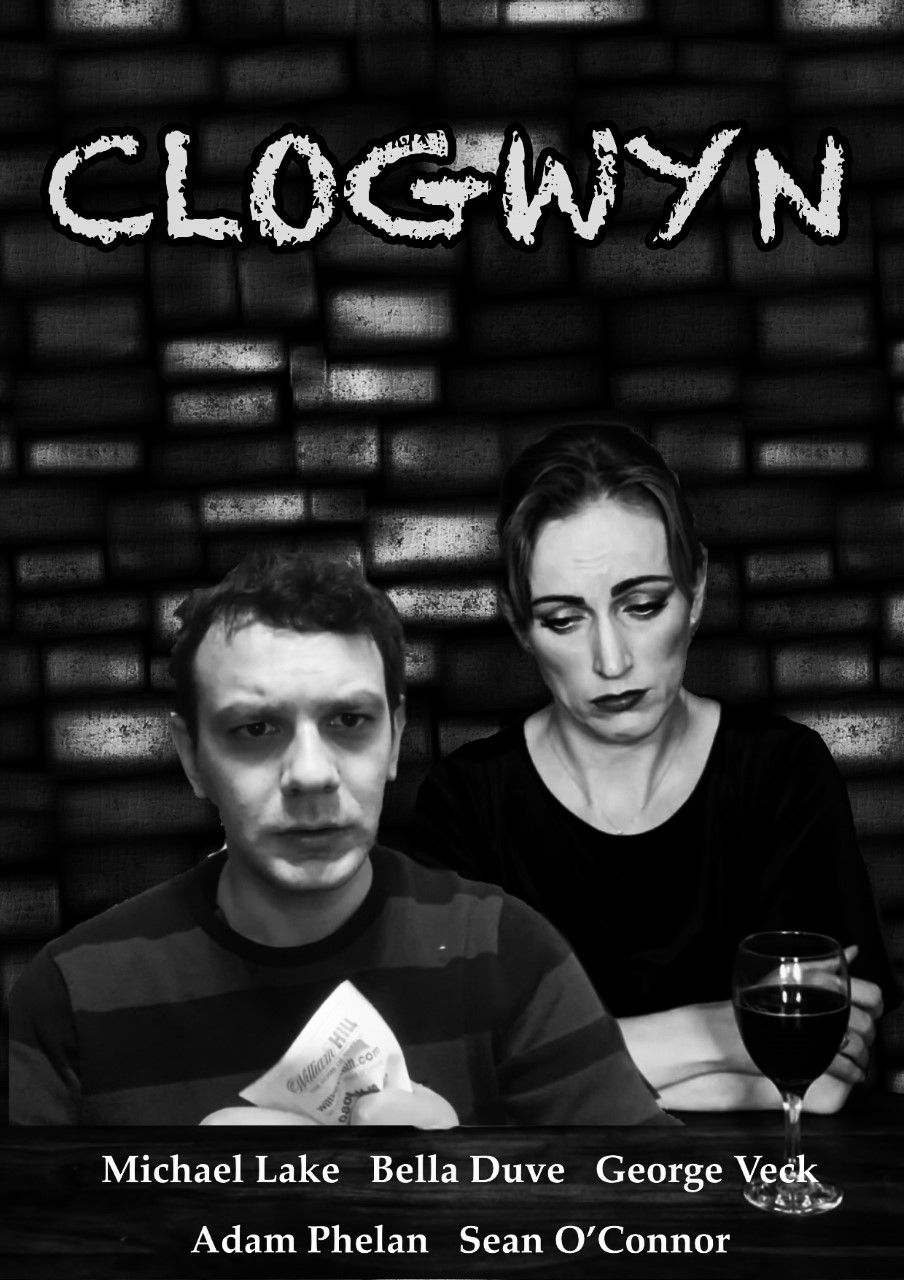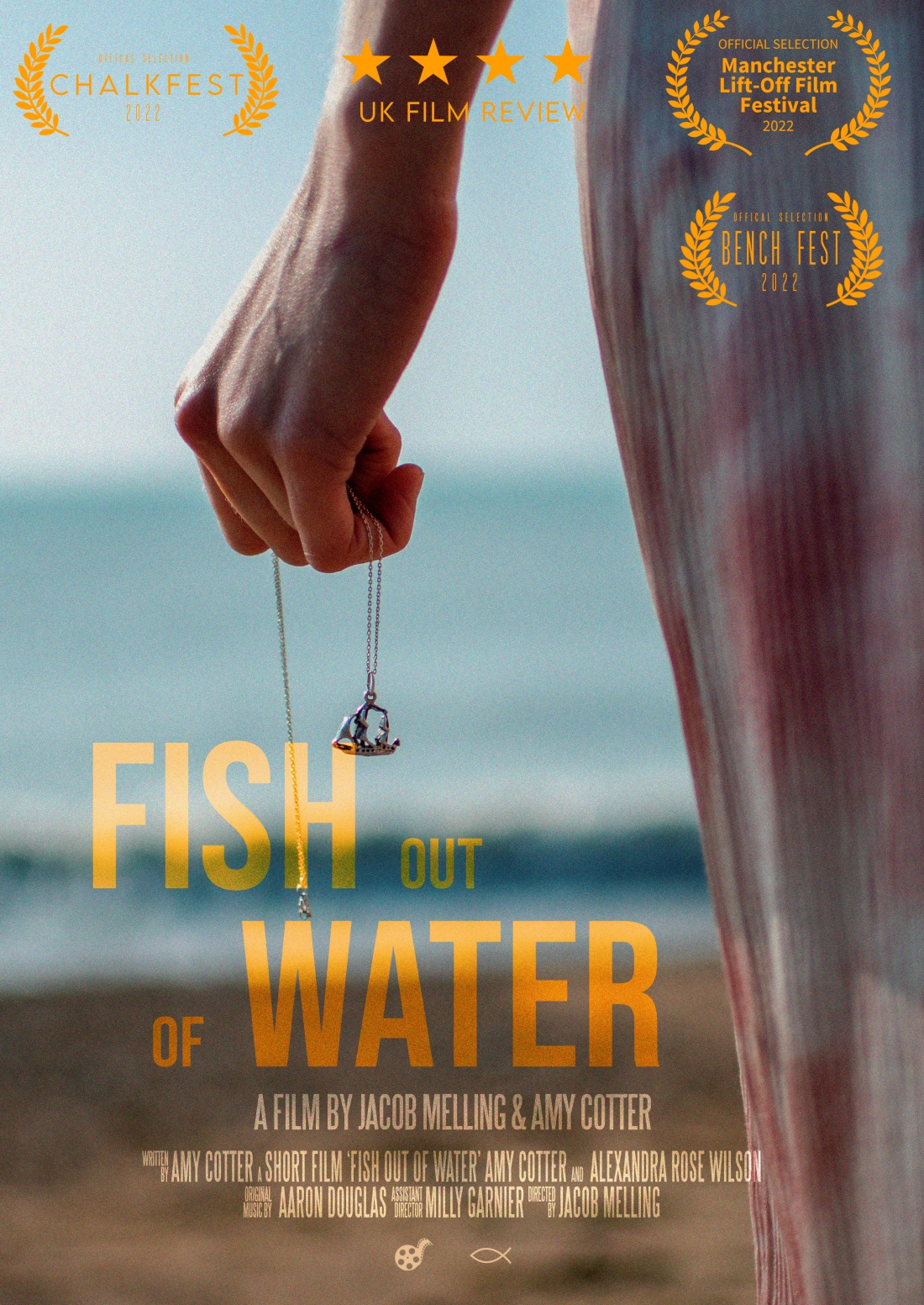I recently had the chance to interview Writer/ Director Harry Wells about their new anthology film Clockwork. In this interview we discuss, script writing, making the most out of what you have and the wonders of the iPhone headphones mic in low-budget filmmaking.I hope you enjoy.
Q: How did you get started as a filmmaker?
HW: I started out as a screenwriter, for around two-three years I was entering the screenwriting competitions and getting some wins along the way and then last year I was able to secure two write-for-hire jobs which eventually sold and will hopefully find their way into production this year. I always loved the idea of making a short film, and filmmaking as a whole is an avenue that I’d always wanted to go down, plus I really wanted something out there with my name on it – just to effectively give me another advantage within the industry.
So, around Christmas time last year I was watching (yearly tradition) It’s a Wonderful Life and I really felt inspired to make something similar to that and really catch that feeling of warm nostalgia along with the importance of family around Christmas. So, I sat down and wrote the script for Clockwork. I sent the script around to some trusted friends and they all said the same thing – “you have to make this.”
With that, I decided, with barely any knowledge on filmmaking nor any idea where to really start, that I was going to make my first short film.
Q: How would you describe micro-budget filmmaking?
HW: A challenge, but a fun-creative challenge. You have to be strategic in all aspects, as you’re working with barely any money, cast, or crew. So everything you do, has to fit within them standards. Even when writing the script, you have to keep in mind what you’re realistically going to be able to shoot. I didn’t really follow the “set rules” of shooting a film – there wasn’t so much a schedule nor a fixed timescale – it was about as amateur as filmmaking can really get, but in a way, that made it rewarding, because we ended up something great for virtually nothing. I just believed that if I had an iPhone, some trusted friends and a good script, we could make a good amateur film.
Q: Would you say that micro-budget filmmaking is better or worse than filmmaking on a larger budget?
HW: Having never really had the experience of large-scale filmmaking it would be unfair of me to really compare the two. But I could throw the positives and negatives of micro-budget filmmaking forward – there’s less pressure, as you’re making something with nothing. It’s a massive learning experience and pure trial and error. I done SO many things wrong but you need these mistakes to learn, and they can only improve you ready for the next film. I really do think it can only help you once you step up to large budget filmmaking, as you’ll have so much more people working with you and having a big team together can only push you in the right direction. For example : I wrote, directed, shot, and edited Clockwork, the writing and directing was fun. But I am not an editor. To say I struggled with it would be an understatement and I definitely feel for my next film hiring an editor will be an essential. Where-as, on a large budget project, an editor will already be in place.
Q: What are some of the trails and challenges you have had to face as a filmmaker?
HW: Oh, there were many – around the time of shooting, there was a nasty storm heading over the South East, strong winds, heavy rain, etc..etc… and we were shooting in the loft of a local theatre, so the sound of wind and rain clattering against the roof made the audio unusable. We also happened to have a power cut just as we finished setting up the set ready for filming! Thankfully, the power cut didn’t last too long, but safe to say I was fearing the worst.
Then, on the outdoor shoots, we were shooting by a church and the scene was set in the 50s, something we couldn’t avoid was people walking within the shot. And obviously a person in jeans and trainers holding an iPhone was not something you’d normally see in 50s, so although they had every right to be there they also naturally were curious as to what was going on – we had to politely ask them to step out of our shot… some took it better than others!
Another big issue – sound. We originally had a boom mic, which was perfect, until I started to realize it wasn’t picking up any sound. Great. So I bought two cheap mics online… everything seemed to be going smoothly until I (the foolish amateur filmmaker) got home and looked over the footage – the mics had broken early doors and our actors sounded like two robots having an argument in the middle of a malfunction, again, something you didn’t really get in the 50s! So, we done it again with non-other than an iPhone headphone mic wrapped around the boom-pole and kept on with some sellotape! Sounds laughable when I look back at it now, but believe it or not, it actually worked pretty well!
Q: Do you have any tips for someone starting out in filmmaking?
HW: My advice would be just to do it. Pick up a smart phone, get some friends together and go out there and shoot something. You will learn so much about filmmaking, and you really never know where it could take you. I think filmmaking is more accessible to everyone now than it ever has been. So pick up on the momentum and just make something great.
Q: How did you shoot and make Clockwork with no budget or backing?
HW: I wrote the script knowing there would be no money towards it, so kept that heavily in mind. And then it was just asking for favours. I went around a few clock shops in my local area, none of them wanted me filming in there, which was fair enough. Then, my good friend at the local theatre said I could come along and check out the loft – it was perfect, a cosy little corner to build a clock workshop. Then it was purely just friends coming along and helping out with filming. We had some late nights and early mornings, but it was all worth it. I really hope the film can be seen as an inspiration to anyone wanting to make a film, but not having the budget or backing – Clockwork has now picked up multiple awards – it’s entirely possible to make a decent film with nothing!
If you enjoyed this interview, then please head over to my Patreon to support me, I offer personalized shoutouts, the ability for you to pick what I review next, bespoke film recommendations to fit you as a person and full access to my Patreon exclusive game reviews. Check it out!










You must be logged in to post a comment.